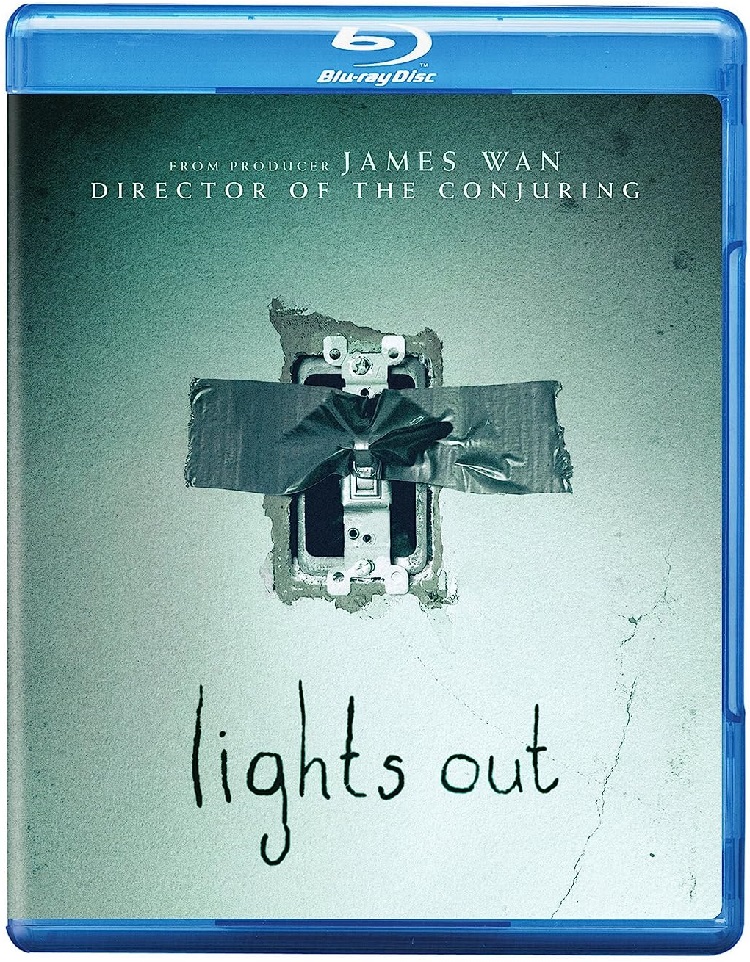
Written by Kristen Lopez
What’s the first thing people do when the power goes out? Search for light. Whether it’s for safety or a genuine fear, no one likes the dark, and the new horror film Lights Out will tell you no one likes it before there’s something lurking within it. Lights Out was one of my most anticipated films this year and I hate to say it didn’t do anything for me. This could due to a fatigue that’s setting in around the films James Wan – who still solid as a horror director – is producing at a pace that verges on the Marvel-esque, or it could be the complete lack of logic that transports characters from A to B while falling back on the familiar.
After the mysterious death of his father, Martin (Gabriel Bateman) can’t sleep at night, a fear only enhanced by his mentally disturbed mother Sophie’s (Maria Bello) conversations with a woman named Diana who’s only seen in shadows. Desperate for help, Martin turns to his estranged sister Rebecca (Teresa Palmer) who’s been down the same road with her mother. But is this mental illness or something far scarier?
David F. Sandberg’s 2013 short Lights Out is a fun, creepy way to spend three minutes; the premise sells itself, the scares aren’t belabored and it leaves an image that will either make you uneasy or cause you to laugh out loud. Hollywood demanded more, greenlighting a feature-length film based on the short and putting Sandberg in the driver’s seat.
Binding mental illness and the paranormal isn’t new for the horror genre. Previous forays into the mind have either been literal (The Cell, Psycho, The Shining) or ambiguous (The Exorcist); Lights Out wants it both ways, simultaneously defining “Diana” as the manifestation of Sophie’s deteriorating mental state and being a literal manifestation herself. Before Diana takes over, the script actually presents a solid case for taking the scares figuratively. Rebecca discusses her own childhood growing up with a mother who ignored her, content to talk to someone who wasn’t there. The script tries infusing both stories into one, with talk of Diana “feeding” on Sophie’s already fragile mental state. But, considering where the two met as children no one ever appears to comment on whether Sophie’s mind played a hand in things or whether Diana is a supervillain with actual powers?
The typical horror path soon plays out, removing the ambiguity in favor of a literal ghoul. The scares are the typical jump scares Wan did better just a few months ago in The Conjuring 2. Citing a lack of story as a detriment in a film of this genre might sound silly, but it’s hard to build tension with storytelling this sloppy. Rebecca finds out details about her mother’s life far too easily, leading one to question why she never knew these things earlier especially with the aid of the internet. (I do praise the film for trying to rely on old-school technology. Rebecca finds old paper files and photos that have supposedly been in her mother’s house this entire time). And for someone who has witnessed the paranormal, our heroine is far too cavalier about entering rooms by herself.
There also is a generic quality to Diana’s look; she’s a grown-up version of Samara from The Ring with a backstory that includes the skin condition from The Others. Sitting in the darkened theater, I wasn’t afraid of the shadows around me, nor was I afraid when I went home. The few times I jumped were from the collective theater experience – the audience ate this up – than anything passing for fear. The stereo mix actually enhances any perceived frights, with sound coming from isolated corners of the theater like an old radio play or drive-in, although it’s doubtful most will appreciate this.
This is probably the best Teresa Palmer movie I’ve watched in the last year (yes, counting her performance in Point Break still). Her Rebecca is strong and fed up with her mother’s ineptitude. She perfectly conveys the dual frustration and sadness at failing her mother, but needing to stand up for herself. Palmer at least attempt to relay the mixed feelings of being a child with a mentally ill parent and she should be praised for doing so. As an individual, Rebecca is too often belittled by others though. Her non-committal relationship is meant to illustrate her damaged personality rather than her just being uninterested in commitment (God forbid), and a social worker sees her as an incompetent guardian because she’s a unique rebel girl who puts up Avenged Sevenfold posters on her wall and reads Sandman.
Gabriel Bateman doesn’t fall into the typical child actor traps we’ve come to see in the horror field. He isn’t trying to be creepy nor is he annoyingly naive or abrasive. Like Rebecca, he’s lived his life with a mother who wants to spend time with him one minute, but falls back on her demons the next. Maria Bello as Sophie doesn’t have anything to do short of talk to herself and cry. The ending scene tries to redeem her for her perceived failings as a mother, but it ends up presenting mental illness in such a grossly negative way.